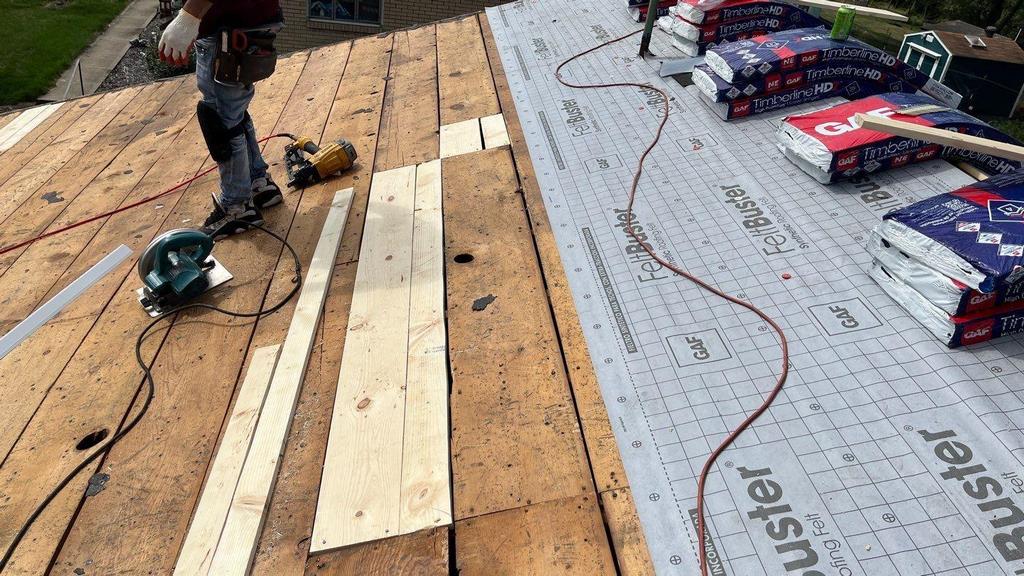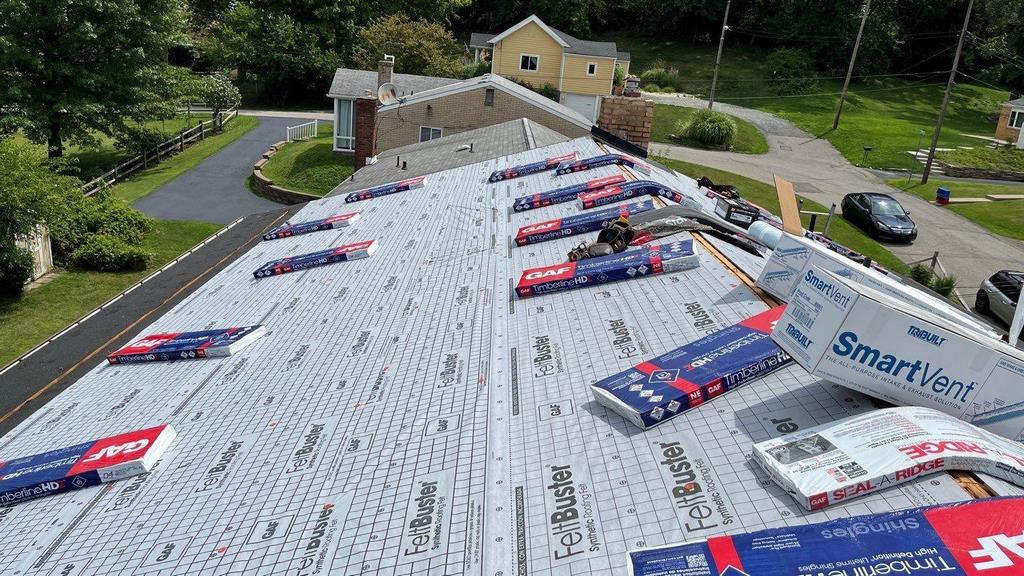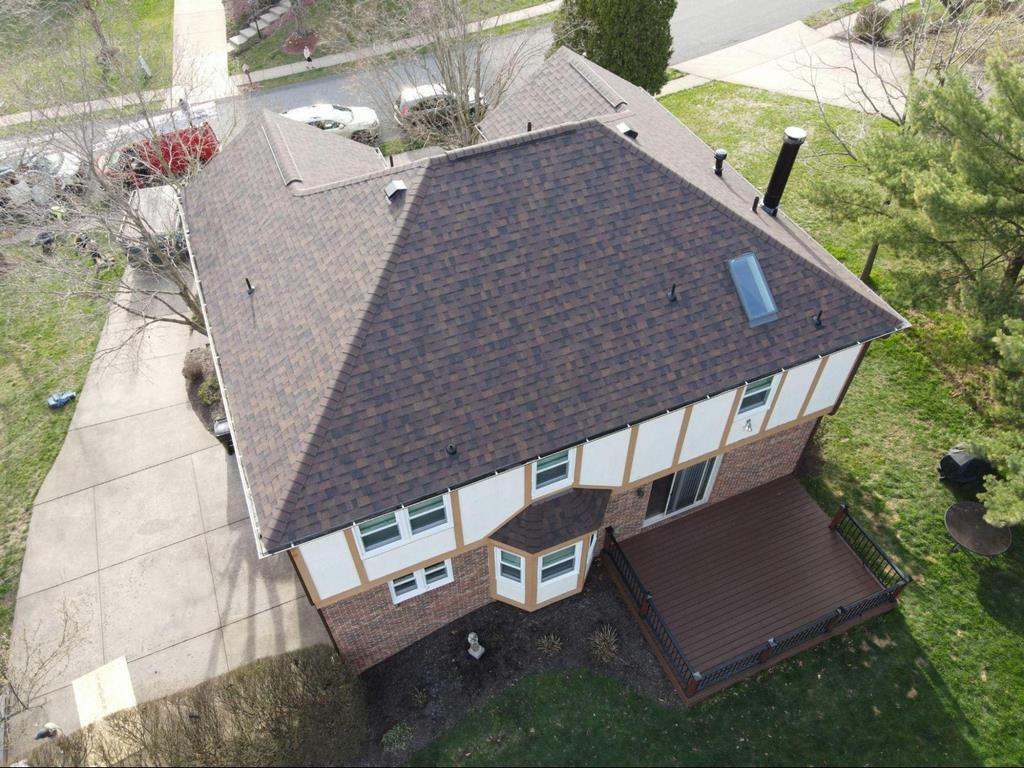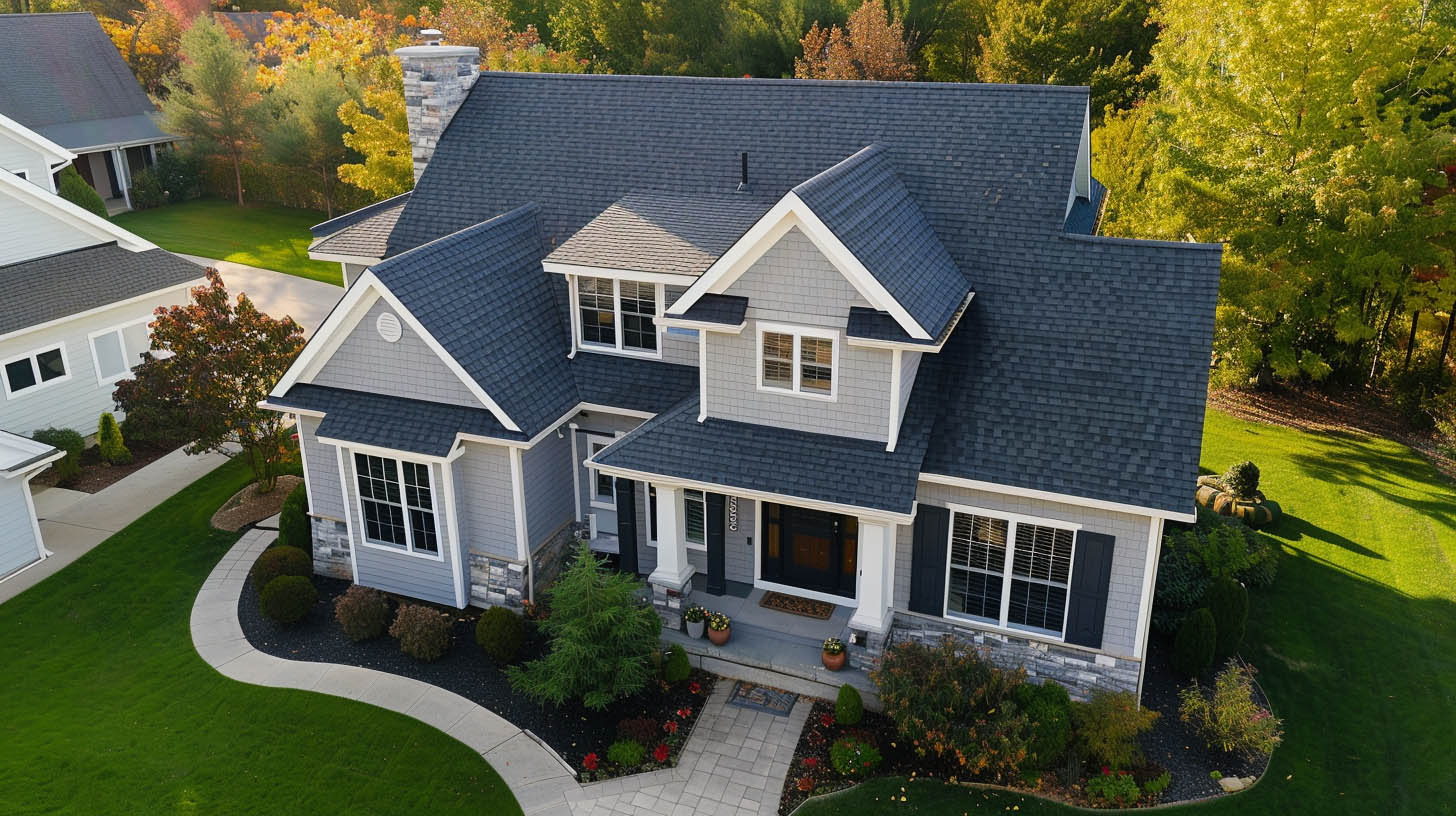
When considering how to choose roofing materials, it’s important to weight a variety of factors, including climate, lifestyle, aesthetic appeal, and durability. To help you choose the right roofing material for your needs, we’ve crafted some detailed information intended to help you make the best choice when it comes to roofing materials for your home.
How to choose the right roofing material can be a big decision and there will be many questions going through your mind:
- Which roof tiles are best?
- How to choose roofing underlayment?
- And a big one, which roofing material is the most durable?
In the end, choosing roofing materials is an important decision that will have a lasting impact on your home or business so do some reading and seek professional advice.
Where to Begin When Choosing Roofing Materials

There are a variety of roofing materials that homeowners can choose from, based on their budget or the style of their home. Each type of roofing has its own advantages and disadvantages – it’s important to research them before making a decision. For example, metal roofs are durable and can last for a long time, but they can be expensive to maintain. On the other hand, shingle roofs are inexpensive to install and maintain, but they may not last as long as metal roofs.
Some of the most common types of roofing materials include:
- Metal
- Shingle
- Slate
- Tile
With so many materials involved, we like to boil it down in two ways when trying to decipher the best roofing material to go with:
Consider Roofing Material According to Your Lifestyle
When it comes to roofing materials, you need to take into account your lifestyle and the climate of your region. Some materials are better suited for certain climates – asphalt shingles in the summertime, for example. You should also think about durability and maintenance when choosing a roofing material – some require less care than others. There are many types of roofing materials to choose from, so make sure you investigate them all!
Roofing Material Based on Lifespan and Quality
It is important to choose the right roofing material for your property and budget. There are a variety of different materials available, each with its own advantages and disadvantages. It is also important to understand that roofing materials have a lifespan – usually around 20-25 years (on average) – with some systems lasting 50+ years. Therefore, it is advisable to maintain the roofing material so wear and tear can be repaired as soon as it’s detected. This ensures uninterrupted performance over time. Scheduling regular inspections help.
Deadlines & Supply Chain Woes
There’s nothing worse than starting a roofing project only to have delays in the supply chain cause costly problems. That’s why it’s important to be aware of how supply chain issues may delay your project. As with many other sectors, roofing materials have been in short supply in the past few years which can lead to hold-ups. However, if you’re able to identify potential supply chain issues early on in the project, you can work with your contractor to mitigate any potential problems.
Metal Roofing Underlayment – Which is Best?
When it comes to metal roofing underlayment, there are a few different options available on the market. However, not all of these options are created equal. In order to ensure that your metal roofing underlayment is effective, it is important to choose the right one for the job.
To set the record straight, roof underlayment is a material that goes under the roofing materials and is used to prevent moisture from entering the attic. It acts as an insulator, preventing heat loss through the floor of your home in winter months when it gets cold outside.
Metal roof underlayment options vary, here are quite a few:
Asphalt-based Products
One of the most popular options for metal roofing underlayment is asphalt-based products. These products are designed to provide a water-resistant barrier between the metal roofing and the underlying structure. However, they can be susceptible to damage from UV rays and high temperatures.
Synthetic Underlayment
Another option for metal roofing underlayment is synthetic underlayment. This type of product is designed to be more durable than asphalt-based products, and it is also less likely to be damaged by UV rays and high temperatures. However, synthetic underlayment can be more expensive than asphalt-based products.
Breathable Underlayment
Finally, there is also the option of using a breathable underlayment. This type of product allows moisture to escape from the underside of the metal roofing, which can help to prevent the formation of condensation. However, breathable underlayment can be more expensive than other options.
Residential Roofing: What Material is Best for You?

When it comes to roofing materials, homeowners have many options to choose from. Whether you’re looking for a trendy option like shingles, tiles, or slate, or a more classic look like tin or fiberglass, there will be a material perfect for you. Materials like tin roofs and fiberglass roofs offer durability and low maintenance costs, while tile and slate are good choices if you want a classic appearance.
Asphalt
If you are looking for a simple and affordable roofing material, asphalt is a great option. This durable material can last for many years without needing any upkeep, making it a great choice if you’re on a budget. In addition, asphalt offers weather protection – helping to avoid leaks in the rain or snow.
Metal Roofing
If you’re looking for a really durable roofing material, metal could be the best option. It’s strong and lasts longer than other types of roofing, so you won’t have to worry about it deteriorating or needing replacement in the near future. Plus, its variety of colors and styles will make it look unique and stylish on your property.
Plastic Polymer Roofing
Plastic roofing is a popular choice for homes that want to save money on their roofing costs. It can be installed quickly and cheaply, making it perfect for people who are on a tight budget. However, plastic roofing is not suitable for areas prone to heavy rainfall or snowfall – it may sag under the weight of these conditions. Reinforced metal plates are often used to prevent this from happening.
Wood Roofing
If you’re looking for a roofing material that will last well, look no further than wood. Wood roofs are durable and weather resistant, making them the perfect choice for a home that will be in use for many years. There is a wide range of colors and styles to choose from – so you can find something that perfectly suits your aesthetic preferences. Plus, wood roofing is easy to repair and maintain – so there’s nothing to worry about if any problems arise during its lifespan.
Clay Roofing
Clay roofing is a great choice for homes that get a lot of precipitation. Its affordable price tag, long lifespan, and ability to block harsh weather conditions make it an ideal roofing material for areas with heavy rainfalls. However, clay tiles can be damaged by strong winds or hail so make sure you choose the right type for your location.
Slate Roofing
Slate roofing is a great option if you’re looking for a sleek and modern roofing material. It’s less expensive than other types of roofing materials, lasts longer, and can be installed on almost any type of roof – flat, pitched, or gabled roofs. One downside is that slate isn’t the best choice if you want to insulate your home or keep moisture out.
Solar Panel Roofing
If you’re looking for a roofing material that will save you money on your energy bills, solar panel roofing is a perfect choice. Solar panels are installed on top of the roofing materials to collect energy from the sun and convert it into electricity. This power can then be used to run your home’s utilities – including lights, appliances, and heating systems. Not only does this type of roofing provide savings on your monthly utility bill, but it also creates less pollution by using green energy sources in place of traditional fossil fuels.
Choose a Roofer You Can Trust

MY PITTSBURGH ROOFING can help you choose the right roofing materials so that it’s not such a daunting task. Regardless of the roofing professional you choose, make sure they are licensed in your state. We recommend you ask them questions about their experience and what materials they use. Be aware of any hidden fees as some contractors may charge extra for things like permits or inspections. Find out more about what to ask a roofing contractor before signing any contract.


